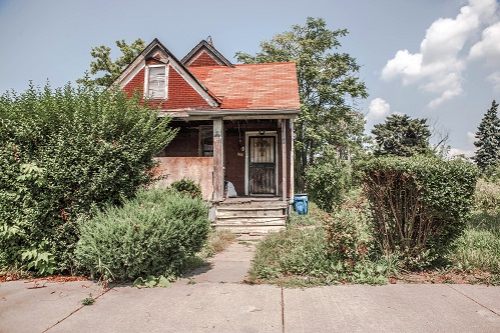What are homeowners insurance discounts?
Homeowners insurance discounts are one of the easiest ways to reduce the cost of your home insurance policy. These discounts can be applied to various aspects of your policy, such as your home’s security features, your credit score, and even your occupation.
Insurance companies offer these discounts to reduce the risk of a claim. For instance, installing a high-end security system or living in a gated community can lower the likelihood of theft, leading to a discount. Similarly, maintaining a good credit score signals financial responsibility, which insurers reward with lower premiums. By being aware of these factors, you can take steps to qualify for more discounts and save money on your homeowners insurance.
The best homeowners insurance discounts
These are the best home insurance discounts in terms of how much they will save you:
- New home construction
- Age of home (five years or fewer)
- Home and auto bundle
- Series of upgrades (electrical, heating, plumbing)
- Age of home (10 years or less)
- Construction type (fire resistant, superior)
- Roof upgrade
- Advance purchase
- Loyalty (10 years or more)
Below is a list of home insurance discounts and the average annual savings for each. Discount amounts and availability vary by state.
Explanations of discount categories:
- Homes are classified by insurers as frame, masonry or superior. You get a bigger discount for a superior classification because the floors, roof and exterior walls are made of metal, concrete or other noncombustible material.
- Burglar and fire alarms are also classified. A system with central monitoring in place is called a central station system. These systems are equipped with central monitoring staff who will take action by alerting the police and fire departments and by calling the homeowner to verify the incident. Fire department/police department systems directly alert police and fire departments. Local alarms are systems with audible alarms and other features that only alert the homeowner –there is no auto-response, so someone would have to call the police or the fire department.
Common homeowners insurance discounts by company
Below, we’ll describe some of the most common discounts on homeowners insurance and how much you can expect to save if you qualify by company. Understanding the different factors that contribute to overall insurance costs is important to maximizing your savings.
Allstate $1,709 $1,282 -25% Farmers $2,323 $1,812 -22% Nationwide $2,013 $1,228 -39% Progressive $2,426 $1,262 -48% State Farm $1,658 $1,227 -26% Travelers $3,404 $2,213 -35% USAA $1,921 $1,191 -38%
Discounts for new homeowners
If you buy a new construction home, you'll get one of the biggest discounts when you buy homeowners insurance. If you are buying a new house, learn more about insurance for new homeowners. The average new home discount is 40%, depending on your insurance company, homeowner profile, state and other factors. Below, you’ll see how carriers who offer a higher-than-average new-home discount compare on savings.
| Company | % savings |
|---|---|
| Nationwide | 76% |
| ASI Lloyds | 74% |
| Citizens | 65% |
| Travelers | 63% |
| California Automobile Insurance Company | 62% |
| Peoples Trust | 61% |
| CSAA Insurance Group | 58% |
| Grange | 58% |
| Security First | 57% |
| American Strategic Ins. (ASI) | 57% |
| Georgia Farm Bureau | 55% |
| American Family | 55% |
| Garrison | 55% |
| Federated National | 54% |
| USAA | 54% |
| Auto Club Group | 53% |
| Alfa | 53% |
| Pemco | 53% |
| Cincinnati Insurance | 52% |
| State Farm | 51% |
| Depositors | 51% |
| Hawaiian Insurance & Guaranty | 51% |
| Erie | 51% |
| Allied | 50% |
| Allstate | 47% |
| State Auto | 47% |
| St Johns | 46% |
| New York Central Mutual (NYCM) | 45% |
| United Farm Family | 45% |
| Memberselect (AAA) | 45% |
| Virginia Farm Bureau | 44% |
| Lighthouse | 44% |
| Nodak Mutual | 43% |
| New Jersey Manufacturers (NJM) | 43% |
| American Commerce (MAPFRE) | 42% |
| Maison | 42% |
| Farm Bureau | 42% |
| Fidelity Ins. | 41% |
| Automobile Ins. Co. of Hartford (Travelers) | 41% |
| Century Ins. | 41% |
Home and auto bundle discount
Bundling your home insurance with car insurance from the same company can result in significant discounts. This not only simplifies your insurance management but also maximizes your savings by taking advantage of the benefits associated with having both policies together.
Based on Insurance.com’s most recent home insurance discount rate analysis, auto and home bundling is one of the biggest discounts you can get – on average, 18%, although bundling isn’t always the best deal. It is important to understand the discounts offered vary by insurance providers and you should research multiple options to find the best deal.
Here are the top insurance companies for home and auto bundle discounts, offering above-average savings.
| Company | % savings |
|---|---|
| Nationwide | 39% |
| United Farm Family | 33% |
| State Farm | 33% |
| Grange | 33% |
| American | 31% |
| CSAA Fire & Casualty | 30% |
| Massachusetts Bay | 29% |
| Farmers | 28% |
| State Farm | 28% |
| Allstate | 27% |
| Citizens Ins. | 27% |
| New York Central Mutual (NYCM) | 27% |
| Preferred | 26% |
| CSAA Insurance Group | 26% |
| Travelers | 25% |
| Pemco | 25% |
| Shelter Mutual | 25% |
| Oklahoma Farm Bureau | 25% |
| Farm Bureau of Arkansas | 24% |
| Erie | 24% |
| Memberselect (AAA) | 24% |
| Auto Club Family | 24% |
| Grange | 24% |
| Pennsylvania National | 23% |
| Safety Insurance | 23% |
| Country Mutual | 23% |
| Arbella | 23% |
| Mid-Century | 23% |
| Farm Bureau | 22% |
| Automobile Insurance Company of Hartford | 22% |
| Alfa | 22% |
| Encompass | 22% |
| Virginia Farm Bureau | 22% |
| Automobile Club of Southern California | 22% |
| Allied Ins. | 21% |
| Amco | 21% |
| Fire Insurance Exchange (Farmers) | 20% |
| Amica | 20% |
| Patriot Insurance | 20% |
| Milbank Insurance | 19% |
| American Family | 19% |
| Cincinnati Insurance | 19% |
| Kentucky Farm Bureau | 19% |
Roof upgrade discount
Upgrading your home’s electrical, heating, and plumbing systems earns you an average discount of 13%. A roof upgrade alone averages an 11% discount. Take a look at the insurers with the best roof upgrade discount below.
| Company | % savings |
|---|---|
| Auto Club Group | 30% |
| Cincinnati Insurance | 28% |
| American Family | 25% |
| Texas Farmers | 25% |
| CSAA Insurance Group | 20% |
| Memberselect (AAA) | 20% |
| Grange | 20% |
| Travelers | 19% |
| Nationwide | 19% |
| Citizens Ins. | 19% |
| Farmers | 18% |
| Depositors | 17% |
| Palisades | 16% |
| Farmers P&C | 15% |
| Century | 14% |
| Country Financial | 13% |
| Homesite | 13% |
| Fire Ins. Exchange (Farmers) | 13% |
| Garrison | 13% |
| USAA | 13% |
| ASI Lloyds | 12% |
| Acuity | 12% |
| State Auto | 12% |
Seniors discount
Some insurance companies offer discounts on homeowners insurance for seniors. Typically, to qualify, the house must be your primary residence, you have to be age 55 or older and you must work outside of your house less than 24 hours a week. The Hartford/AARP is one example of a company that offers a senior/retired discount on home insurance.
Loyalty discounts
To qualify for loyalty discounts, you usually have to remain in good standing, and many insurers only offer the discount to those who are claim-free for a certain period. For 10 years, the average savings is 8%; for five years, it’s 6% and for three years, it’s 5%.
Loyalty discounts are great reasons to stay with your insurance company, but that doesn't mean you shouldn't shop around. Getting quotes from other insurers every few years at a minimum is still a good idea. Your insurer's loyalty discount might pale compared to another insurer's new customer discount and other perks.
Claims-free discounts
How the claim-free discount on home insurance is applied, like all other discounts, depends on your insurance company’s guidelines. Some will give a discount if you don’t file a claim for three years, while for others, it may be five or 10. Others will give the discount over a period of years, typically three to 10, and increase it the longer you remain claims-free.
Security system discounts
The amount of the home insurance discount for security systems depends on the security enhancements and type of alarm system you install. You’ll get more savings for a high-end, central alarm security system that alerts the police of a break-in and includes fire protection than for deadbolt locks and passive burglar alarms that sound but don't alert the police through a monitoring system.
To qualify for the maximum discount most home insurance companies offer, your alarm system must include central monitoring that connects to emergency services. When an intruder is detected, it sets off an audible alarm at your house and the system sends a signal to the alarm company's monitoring facility. The alarm company’s monitoring staff usually calls you first and if there's no response or you report an intruder, the monitor notifies the police or fire department. A less expensive system with monitoring that contacts you but does not notify the police or fire departments may earn some discount, but it will be less.
Fire prevention and detection discounts
Fire sprinklers, fire alarms, fire extinguishers located on every floor of the house and smoke detectors will all typically earn you a home insurance discount. Sprinklers and fire alarm systems with central monitoring, meaning that the alarm company staff contacts you and the fire department when a fire is detected, earn the biggest discounts.
In California, you can also get a discount for wildfire mitigation steps you have taken to protect your home from wildfire damage.
New customer discounts
Changing insurance companies can earn you a discount. But most insurers only include the discount for a limited period. So, you'll want to figure out whether the discount for a short time period, say a year or two, is worth changing your insurance - and losing your loyalty discount.
Gated community, association, or neighborhood watch discounts
A gated community, a neighborhood watch or a homeowners association show insurers that you're a lower risk.
Insurers offer modest discounts for these scenarios, so if you fit any of these situations, contact your insurance company.
Married discount
Being married can typically net a small discount because married people present less risk statistically than single people.
Inflation adjustment discount
You can get a discount if you're willing to increase your home's dwelling coverage to reflect an inflation increase. Insurers can then raise your home's coverage to allow for inflation.
This lets the insurer keep up with rising costs and home rebuilding costs rather than increase the dwelling coverage at renewal time.
Military and other occupational discounts
Some insurance companies offer home insurance discounts to active military members. Emergency responders, educators and others may also earn a discount as some carriers offer savings to people in these professions.
How to get homeowners insurance discounts
Getting homeowners insurance discounts is easier than you might think. Here are some steps to help you get started:
- Contact your insurance company: Contact your insurance provider and inquire about the discounts they offer. They can help you determine which discounts you qualify for and how to apply them to your policy.
- Review your policy: Review your policy closely to identify any discounts you might be eligible for. Look for discounts related to your home’s security features, your credit score, and your occupation.
- Bundle policies: If you have multiple insurance policies with the same provider, you may be eligible for a multi-policy discount. This can help you save even more on your home insurance.
By following these steps, you can uncover various discounts for homeowners insurance and significantly reduce your premiums.
How to get the most home insurance discounts
Maximizing insurance discounts requires some effort, but it can pay off in the long run. Here are some tips to help you get the most out of your discounts:
- Keep your credit score high: A good credit score can help you qualify for lower insurance rates. Make sure to pay your bills on time and keep your credit utilization low.
- Install security features: Installing security features such as deadbolt locks, smoke detectors, and security cameras can help you qualify for discounts.
- Avoid small claims: Filing small claims can increase your insurance rates. Try to avoid filing claims for minor damages and instead pay for them out of pocket.
- Shop around: Compare quotes from different insurance companies to see which one offers the best discounts.
The importance of good credit
Good credit is essential for getting the best possible rate on your home insurance policy. Insurance companies use credit scores to determine the likelihood of a claim being filed. If you have a good credit score, you’re considered a lower risk, and your insurance rates will be lower. Here are some tips to help you maintain good credit:
- Pay your bills on time: Late payments can negatively affect your credit score. Make sure to pay your bills on time to keep your credit score high.
- Keep your credit utilization low: Lower credit utilization can help you maintain a good credit score.
- Monitor your credit report: Check your credit report regularly to ensure there are no errors. Dispute any errors you find to keep your credit score accurate.
Home insurance discounts: The bottom line
With home insurance rates rising in 2024, maximizing discounts is more crucial than ever. By bundling policies, upgrading home features, maintaining a good credit score, and staying claims-free, homeowners can significantly reduce their insurance costs. Discounts can add up to substantial savings, with some of the best offers reaching up to 40%. It's essential to regularly review your policy, compare providers, and ensure you're taking full advantage of available discounts to keep your premiums as low as possible.
Methodology
Insurance.com commissioned home insurance discount information from Quadrant Data Services. Discounts are averages calculated based on rates gathered from 34,588 ZIP codes and 82 insurance companies.






